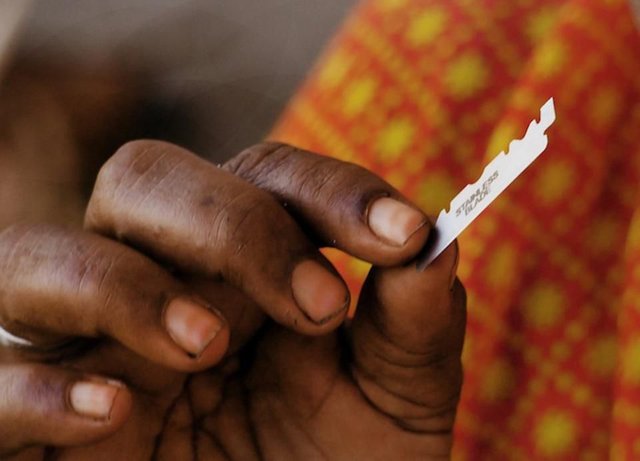It's Time To Stop Female Genital Mutilation
UNICEF USAVoice Children First.
Sarah Ferguson Sarah Ferguson , UNICEF USA
It's happening right now in the United States and in countries around the world. In 2018, millions of girls will be forced to undergo female genital mutilation (FGM), a violent act that irreparably damages their bodies, inflicting excruciating pain, life-threatening health risks and emotional trauma that can last a lifetime.

© UNICEF USA
At least 200 million girls and women alive today have already endured FGM. The cruel practice reflects and reinforces gender inequality by preying on the least powerful members of society: girls between infancy and age 15. FGM is most prevalent among girls ages 14 and younger in Gambia (56 percent), Mauritania (54 percent) and Indonesia, where around half of all girls under the age of 12 have been subjected to the practice.
FGM is almost universal among girls and women between the ages of 15 and 49 in Somalia, Guinea and Djibouti. The practice persists in diaspora communities throughout Europe and the United States as families bring the custom with them from their communities of origin.
Fatouma Ali worked as a traditional cutter in Djibouti for decades until she attended a UNICEF-sponsored training session in 2008 that convinced her that FGM was cruel, unhealthy and not compatible with Islam. "I never thought we were violating human rights," she says (see video below). "Now, if I hear that someone in the area is expecting a baby, I try to get to their house quickly so I can talk to them about not cutting their daughters. Some people tried to double my fees, but I refused. Once you see the light, you cannot pretend to live in the dark."
Now a midwife, Fatouma is part of a network of 660 agents of change in her community, Balbala. She speaks out against FGM to friends, family and neighbors. "When I last counted, my group of outreach workers had saved 200 girls — 20 of them from my own neighborhood," she says proudly.
Working with the United Nations Population Fund (UNFPA), UNICEF fights this extreme form of discrimination against girls and women on every level. Social workers stand up for vulnerable young girls on a one-to-one basis. Trained leaders organize community outreach programs to challenge social norms village by village. Policy advocates encourage governments to reform health care practices, human rights policies and legislation. UNICEF also provides medical care and counseling for girls and women who have been harmed and traumatized by mutilation.
In countries where UNICEF and UNFPA work jointly to end FGM, girls are one third less likely to undergo this harmful practice today than they were in 1997. Girls who are not subjected to this harmful practice tend to grow up healthier and to have healthier children. They are often better educated, earn high incomes and are more empowered to make decisions about their own lives. But by 2030, more than a third of all births worldwide will be in the 30 countries where FGM persists. Millions of girls are at risk.
Help create a more equal, just and prosperous world by supporting UNICEF's efforts to end FGM once and for all.
DONATE NOW
https://secure.unicefusa.org/donate/give-girls-opportunity-thrive/34031